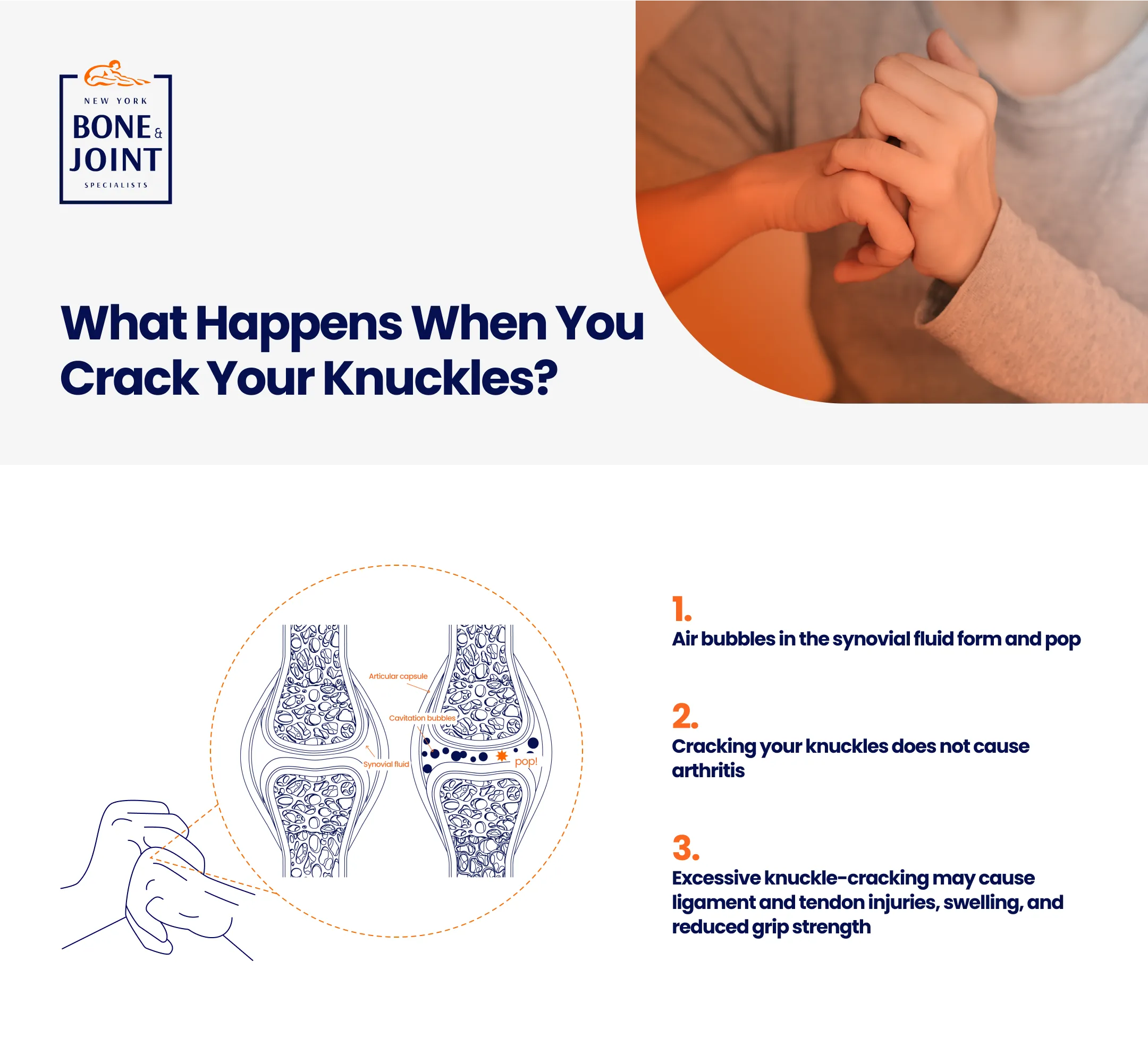Is cracking your knuckles just a harmless habit — or could it be bad for your joints?
Cracking your knuckles is a common habit, and for many, it’s a quick way to release tension. In fact, studies show that 25% to 50% of people crack their knuckles regularly. But is it truly harmless? Or could it be causing damage, like arthritis? Let’s put some misconceptions to rest.
What makes the cracking sound?

When cracking your knuckles, the familiar popping sound comes from bubbles in the synovial fluid, a lubricant in the joint. When you pull your knuckles apart, the motion creates air pockets in the fluid. These bubbles eventually pop, creating that satisfying — or annoying — sound, depending on your perspective.
Now, back to the question: Is cracking knuckles bad for you? Not necessarily. Cracking your knuckles does not cause arthritis, as one study published in the Journal of the American Board of Family Medicine concluded.
In some instances, cracking a joint may actually be helpful. For example, cracking your back can relieve pain and stiffness in the spine, but only if you do it safely and under the direction of a medical professional.
That said, knuckle cracking isn’t entirely harmless. According to an article published in Harvard Health, habitual knuckle cracking could lead to minor issues like ligament or tendon injuries, swelling, and reduced grip strength. While these effects are uncommon, they’re worth noting.
What if your hand or finger hurts?
If your hands or fingers feel painful or stiff, cracking your knuckles probably won’t help. In fact, this could be a sign of arthritis (which, again, is not caused by cracking your knuckles). Arthritis is a degenerative condition resulting from the gradual thinning of the cartilage cushioning the bones in a joint. When the cartilage wears down, the bones rub against each other, causing pain, stiffness, and restricted movement. A physical exam to assess pain and range of motion, as well as imaging tests to evaluate cartilage damage, can determine whether you have the condition.
The most common form of arthritis, osteoarthritis, typically affects people at older ages as the cartilage deteriorates over time. Due to frequent use, our hands and wrists, which contain 29 bones, are particularly vulnerable. Osteoarthritis can also result from joint injuries.
Rheumatoid arthritis (RA) is an autoimmune disease where the body attacks healthy tissue, often targeting small joints in the hands and wrists. Unlike OA, RA tends to affect the same joints on both sides of the body.
Conservative treatments can often alleviate arthritis symptoms. These may include:
- Physical therapy to improve mobility and strength
- Pain-relieving medications like NSAIDs or acetaminophen
- Steroid injections to reduce inflammation
- Splints or braces for joint support
For RA, immunosuppressive drugs may be prescribed. If the joint damage is severe, surgery, such as joint replacement, might be necessary.
Let us give you a hand against joint pain and stiffness
Are joint pain and stiffness slowing you down? The doctors and staff at New York Bone & Joint Specialists, a leading sports medicine center, are here to help. Whether it’s arthritis or another orthopedic condition, we’ll determine an accurate diagnosis and develop a treatment plan just for you. Contact us today for a consultation.



